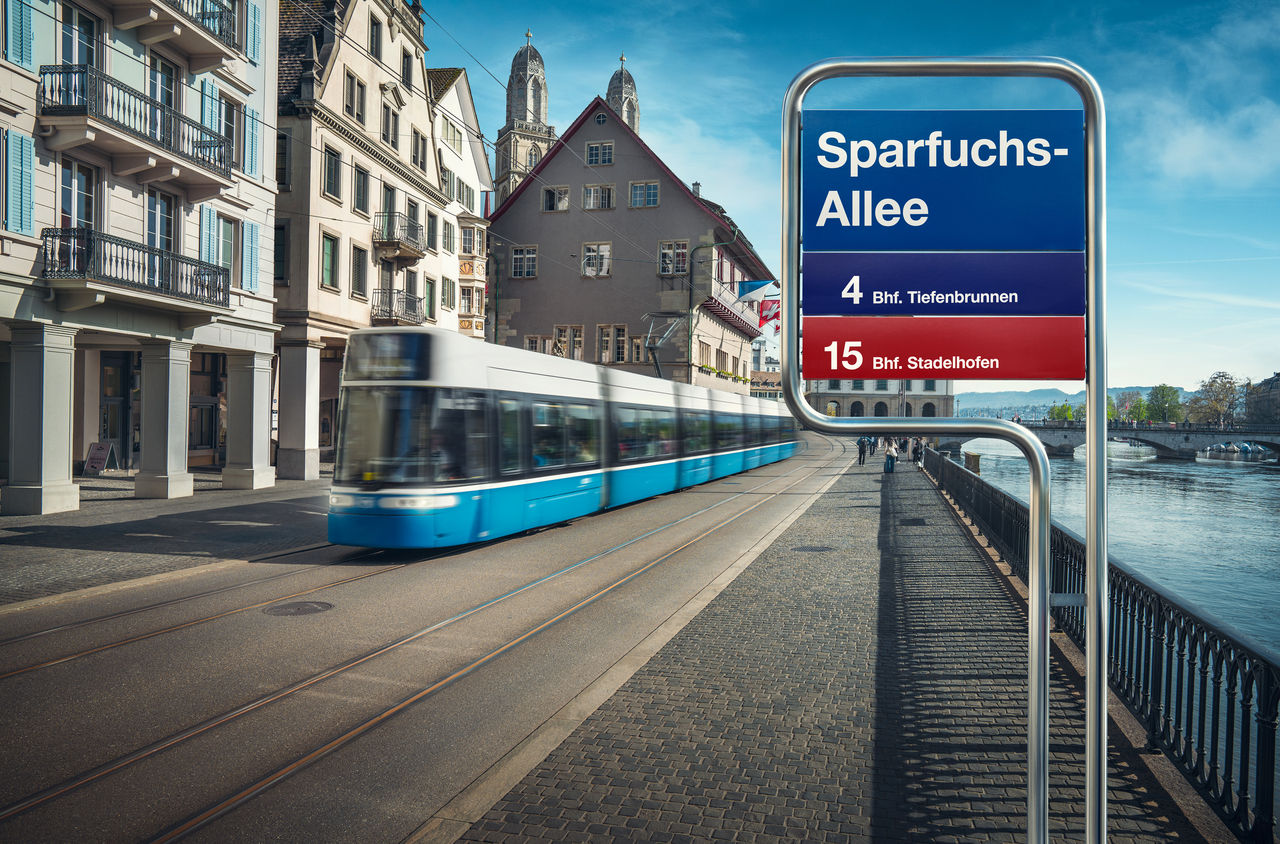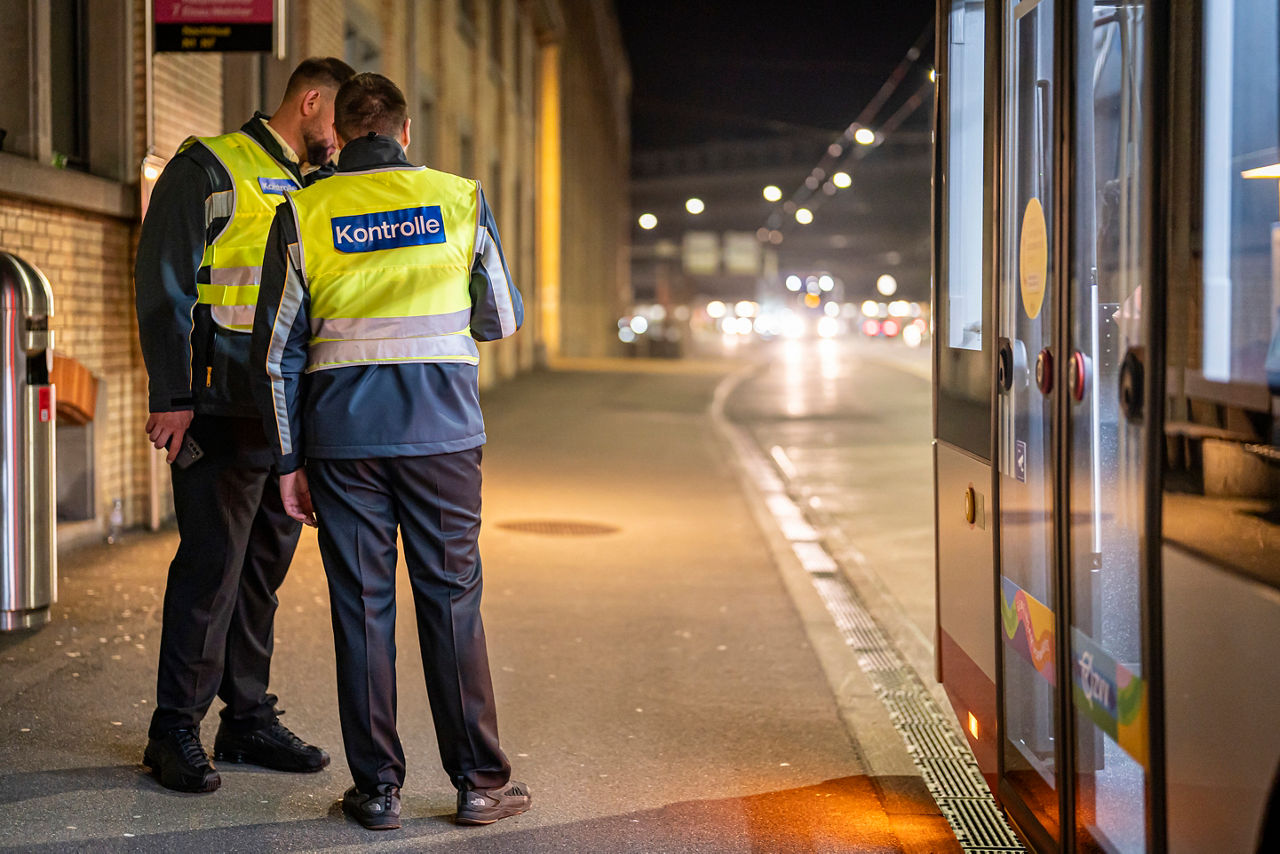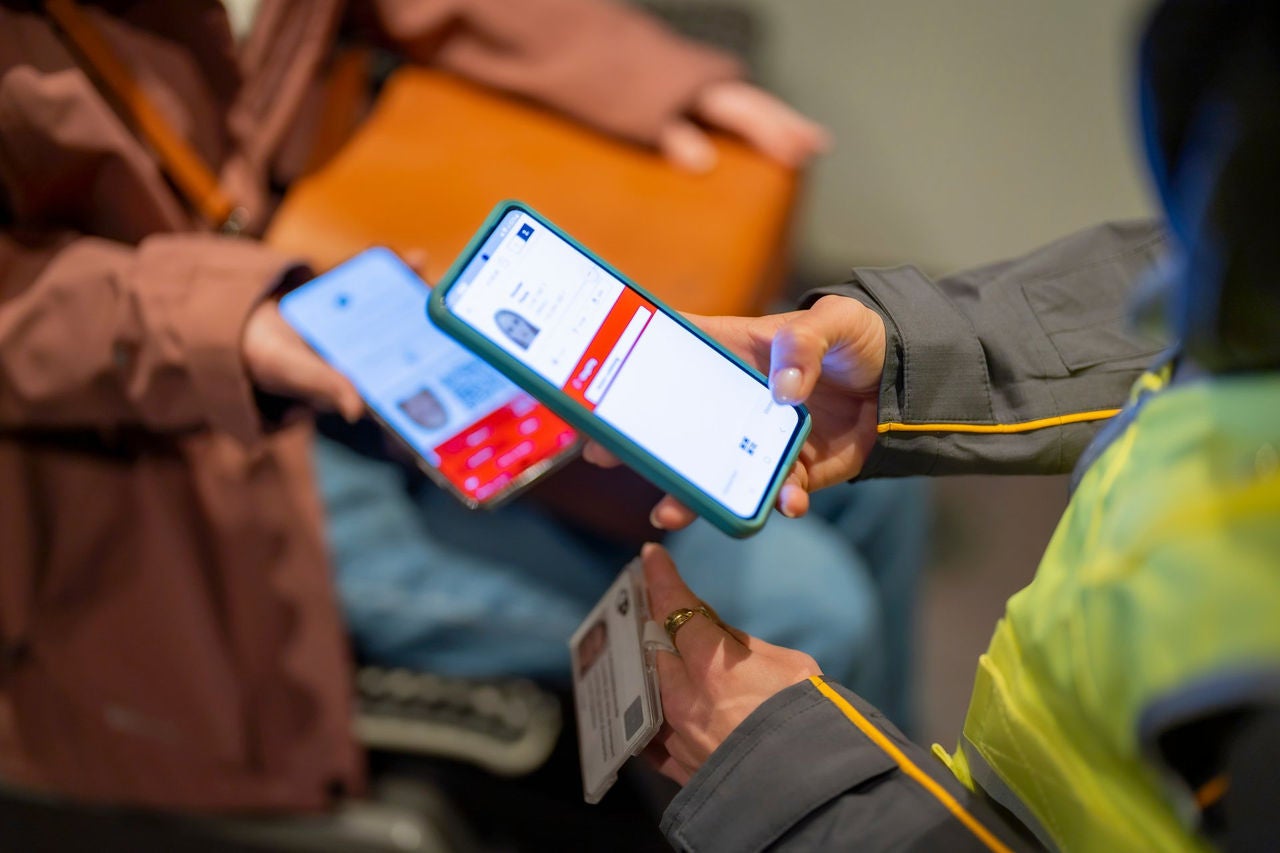Important information about ticket inspections
The ZVV’s open public transport system is based on trust and fairness. To ensure that ticket prices remain affordable and that public transport remains financially viable for the public sector, everyone needs to play their part: if you use public transport, you buy a ticket. This can be done quickly and easily via many channels.
Why are tickets checked?
The ZVV and the whole of Switzerland have an open public transport system. Our passengers board buses, trams, trains and boats without turnstiles, gates or access barriers. Anyone can board public transport almost anytime and anywhere. This model is based on fairness and trust. However, it also makes all passengers responsible for buying a valid ticket on their own and in good time. This is stipulated in the Swiss Passenger Transport Act and in the tariffs issued by the industry organisation Alliance SwissPass, which are valid throughout Switzerland.
Why do we even need a ticket?
Swiss public transport gets passengers from A to B efficiently. The day-to-day operation of the dense transport network and ongoing improvements require money. Public transport is subsidised and costs much more than it earns in ticket sales. In the area served by ZVV, this means that the Canton of Zurich, its municipalities, the federal government and the neighbouring cantons bear between 35 and 40 percent of the costs incurred. If revenue is lost due to tickets not being purchased, either the public purse has to foot the bill or ticket prices have to go up – much to the chagrin of honest passengers.
Tickets can be purchased here:
- The ZVV app and other ticket apps
- Ticket machines
- Counters
- Online shops
- ZVV-Contact
The responsibility for having a valid ticket always lies with the passenger.
Why fare dodging isn’t the answer
In our day-to-day lives, it goes without saying that if you use a service that incurs a charge, you have to pay for it. If you can’t pay at the supermarket because the card terminal isn’t working, you can’t just take the groceries with you. And if you want to watch a film at the cinema, you have to buy a ticket first. You can’t just sit in the hall and then pay afterwards or not at all.
The same applies to public transport: passengers must have a valid ticket at the latest when the public transport service departs.
What types of inspection are there?
- Individual inspections (everyday, ongoing operations)
- Large-scale inspections (e.g. entire station, numerous vehicles)
- Focused inspections (e.g. at certain times of day, on lines with a high proportion of people without valid tickets)
- Plain-clothes inspections (in everyday clothing)
- Uniformed inspections (visible, sometimes with Security Service)
Who is involved?
- Ticket inspectors
- Security Service (provides support during large-scale inspections or conflict situations)
Who carries out the inspections?
In the area served by ZVV, three of our companies with market responsibility carry out the inspections:
- Swiss Federal Railways (SBB)
- PostAuto AG (PAG)
- Verkehrsbetriebe Zürich (VBZ)
Other transport companies carry out checks on their networks (e.g. Thurbo or Aargau Verkehr).
Can ticket inspectors be lenient?
Ticket inspectors on board the vehicle are not permitted show leniency, in accordance with the constitutional principle of equal treatment. Staff do not have the means or the time to thoroughly check all passenger claims. After receiving the surcharge, passengers have the option of contacting the back office. Staff there can review individual cases and show leniency depending on the circumstances.
Ticket inspections: facts & figures
ZVV carries out spot checks on more than eight million passengers every year. Travelling without a valid ticket – also known colloquially as fare dodging – causes ZVV to lose more than CHF 80 million in revenue every year. Revenue from surcharges far from covers the costs of inspections. Here you can find more facts and figures about ZVV inspections.
> 8 million
passengers are checked each year
> 95 Prozent
of passengers travel with a valid ticket. This number remains constant across the area served by ZVV.
> CHF 80 million
Loss of revenue per year due to tickets not being purchased
> 40 Prozent
of passengers without a valid ticket repeatedly travel without a valid ticket.



